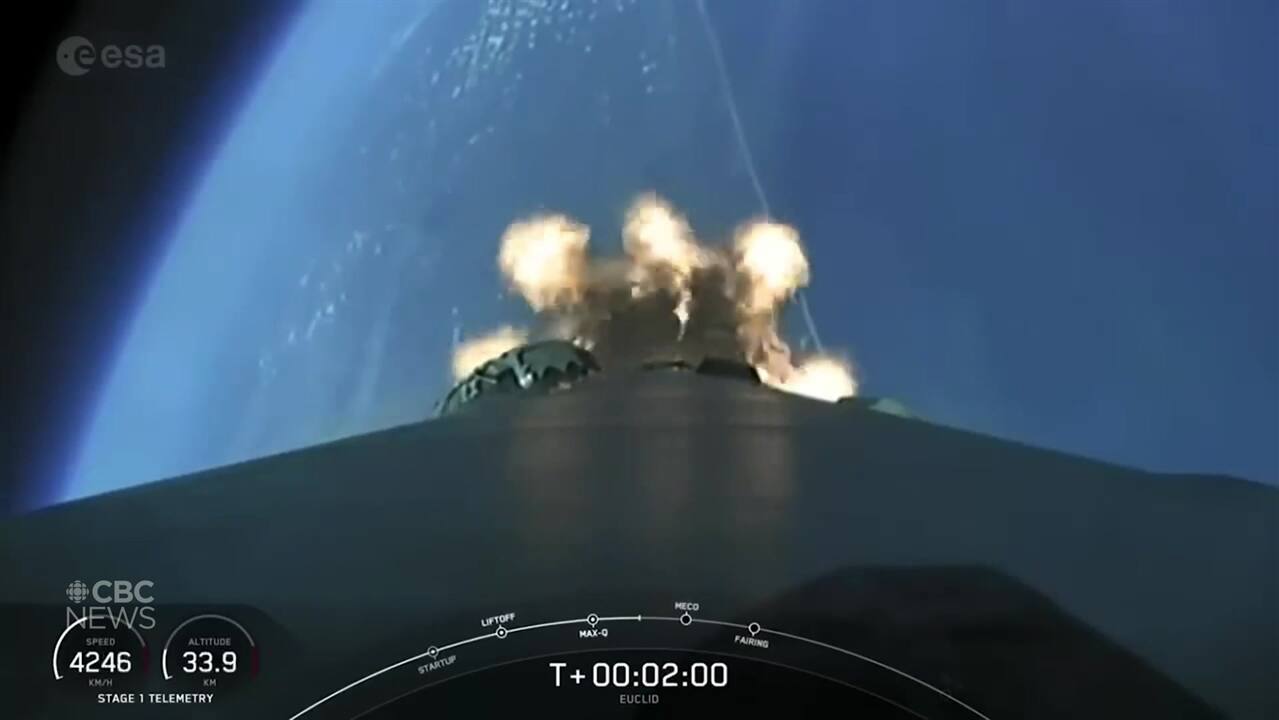B.C. scientists hopeful as international project launches Euclid spacecraft to map dark matter | CBC News
Several scientists in British Columbia are about to peer into the darkest parts of our universe.
The astronomers are part of a global consortium watching eagerly as a vessel they helped design hurtles through space.
The Euclid spacecraft hitchhiked off the planet on a SpaceX rocket on Saturday, on a mission the consortium planned to create the best-ever three-dimension map of the known universe.
Their hope is to understand dark matter and dark energy, phenomena that make up 95 per cent of the cosmos, but which remains a mystery.
“Most of the universe is not made of atoms,” University of B.C. astronomy professor Douglas Scott told CBC News. “It’s made of a kind of stuff called dark matter and another kind of stuff called dark energy.
“And although we have names for these things, we really don’t know what they are.”
The Euclid spacecraft, on an unmanned mission involving several Canadian scientists, launched on July 1 with a SpaceX Falcon 9 rocket. It will create a 3D map to better understand dark matter in the universe.
Scott is one of roughly 2,000 scientists, from 17 countries, involved in designing and planning the instruments aboard the Euclid.
He said the team includes about 30 Canadian scientists, in addition to a number of their students.
Overseen by the European Space Agency, the mission’s $1.4-billion price tag is being covered by a number of countries, including Canada.
The ship will take roughly a month to reach its destination and begin observing one-third of the sky. Using various instruments including a type of telescope, scientists hope to be able to examine 10 billion years of the evolution of our universe. The mission took 12 years of scientific preparation and technical planning, according to the European Space Agency.
The Euclid satellite will spend six years in space and its first images are expected in two months.
The ship includes a telescope 1.2 metres in diameter, as well as a camera that can capture wavelengths visible to the eye, and a device to capture near-infrared waves.
The Euclid took off from Cape Canaveral, Fla., on Canada Day. The project hired private firm SpaceX to carry the ship aboard its reusable Falcon 9 rocket, which delivered it to space and returned safely to earth.
Originally, Russia’s space agency was supposed to launch the Euclid, until geopolitical events took a turn for the worse with the country’s invasion of Ukraine.
The Early Edition8:09Euclid space mission launches
Scientists will be exploring the evolution of the dark universe
Whether or not the mission uncovers the mystery of dark matter and dark energy, other scientists are watching eagerly for any data that could help shine a light into the darkness of our cosmos.
“We don’t know what it’s made of and it’s clear, sooner or later, there will be implications for everyday life,” UBC astronomer Ludovic Van Waerbeke told CBC’s The Early Edition on Monday. “There is a big element of curiosity … also this element of new discovery that’s potentially there.”

For all the latest Technology News Click Here
For the latest news and updates, follow us on Google News.


